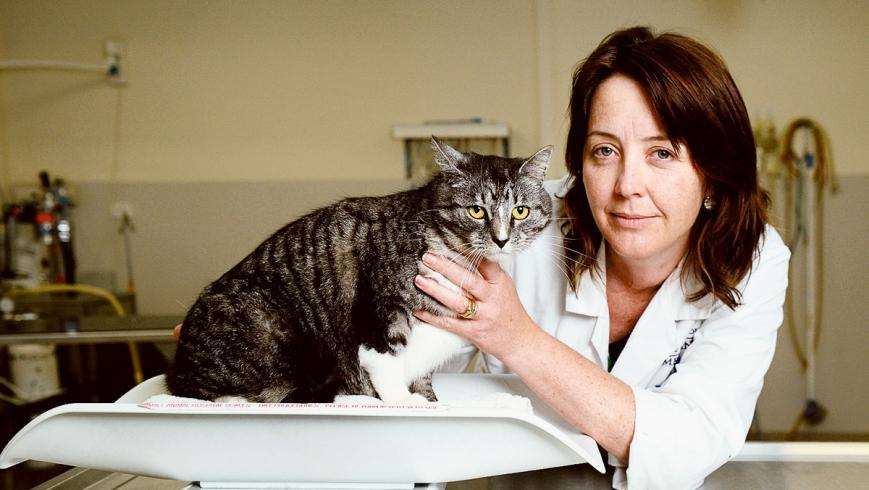Being a fat cat is not what it is cracked up to be, with experts warning that molly-coddled moggies face serious health risks.
With their pets at risk of diabetes and high blood pressure, the owners of some felines are joining online cat “weight control” sites, but vets urge against sudden dietary changes.
‘‘Fat-cat boot camps’’ with sudden changes to strict diets are not always the best for pets, according to Associate Professor Caroline Mansfield, the head of Melbourne University’s veterinary hospital small animal medicine unit in Werribee.
Dr Mansfield says overweight cats can become diabetic and need daily insulin injections. But a change in diet without veterinarian supervision can cause problems with the liver and other major organs.
She says Max (pictured) weighs about 5.5 kilograms and is overweight according to the cat body condition score, which is similar to the human body mass index score.
Dr Mansfield has seen cats weighing more than 10 kilograms, or more than twice the size of an average domestic cat of about 3.5 to 4.5 kilograms. She says a slowly reduced, veterinarian supervised diet can reverse type 2 diabetes in cats.
Up to half of cats found to have type 2 diabetes can, after initial insulin injections, return to normal.







